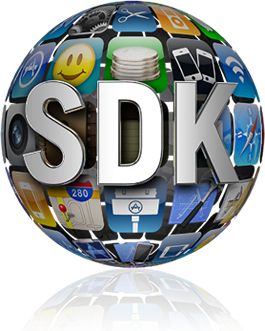
During Apple's media event on Tuesday, Senior Vice President of iPhone Software Scott Forstall announced that iPhone OS 3.0 will include over 1,000 new APIs for developers to take advantage of when building iPhone apps. Though he only discussed perhaps a dozen or so during the presentation, iPhone developers are already buzzing with excitement.
The response so far seems relatively positive. "I didn't have many expectations for the 3.0 OS, to be honest, but this update definitely seems like it's going to be huge for both consumers and developers," developer Bryan Henry told Ars. "There has been a lot added API-wise that I think developers can really get creative with."
If the iPhone wasn't already an attractive platform—there are over 50,000 registered developers according to Apple's Forstall—the new abilities in the latest SDK make the platform even more so. "Clearly some of these features are going to dramatically increase developer interest and innovation," said Joe Pezzillo of Metafy.
Specifically, the developers we spoke to were most excited about the addition of CoreData, a data-handling API commonly used in apps designed for Mac OS X Leopard, and the new peer-to-peer communication ability. "Apple has answered a lot of what I was most interested in seeing API-wise—mostly the Core Data and P2P connectivity features," said Justin Williams of Second Gear.
"Core Data!" agreed Marcus Zarra, developer and author of a CoreData book and the blog Cocoa is my Girlfriend. "That just removed about a third of my workload on most apps that I write," he told Ars.
"GameKit—what Apple is calling the peer to peer finding and voice chat—looks awesome," said Colin Barrett of Springs and Struts. "It will make many of the game ideas I had kicking around possible."
The ability to connect to external devices via the Dock and Bluetooth is also a major addition that can open up new areas of innovation and user interaction. "The two big things we're excited about on the developer side is hardware and bluetooth access," Layton Duncan of Polar Bear Farm told Ars. Hardware integration could be beneficial to the company's popular Record Audio recording app, for instance.
Developers were also keen on the new opportunities opened up by a new API to allow in-app content purchasing. "I would say the most important thing Apple released yesterday, undoubtably, is StoreKit, which lets you handle in-app purchasing," said iPhone developer Tristan O'Tierney. "This is a big business model change, and basically puts Apple on par with Paypal in terms of enabling merchants."
Despite the excitement, though, some developers did notice some things they thought were missing from the iPhone OS 3.0 SDK. Though the addition of in-app purchasing is welcome, people would still like to see more improvements to the App Store. "I'm disappointed that in-app purchasing is coming out before trials," or freely downloadable demos, said Barrett. "But several people I talked to inside [Apple] were all, 'Well, they're different teams on different schedules,' so maybe there's hope."
In addition, developers would like to see some way to better highlight higher quality, more expensive apps. Polar Bear Farm's Duncan is concerned about the customer experience on the store, and how hard it is to find the good stuff. "It can be quite risky to charge what an app is really worth, when rankings are based on download numbers alone and visibility on the store makes or breaks an app," he said.
Another big omission from developers' point of view is a standardized way to sync data between a desktop application and an iPhone application. "A way to sync between core data stores on the desktop and device would have been nice," said Second Gear's Williams. Several other developers also expressed an interest in this—it would mean users data is synced along with contact, calendar, music, and other data whenever the iPhone is plugged in to a user's machine. Likewise, a standard sync conduit could open up the ability to enable automatic OTA syncing via MobileMe as well.
Developers also mentioned a few other features that would be useful, including a way to add calender items from an app, much the way developers can access the Calendar Store on Mac OS X Leopard. Also, several developers have expressed an interest in better text handling capabilities. And, says iPhone forensics expert Jonathan Zdziarski, the iPhone could really use improved data security. "File Vault-like encryption of user data would be a big improvement to prevent identity theft," he told Ars. "It would make my job harder, but it would also protect the other 99.9 percent of law-abiding citizens with private data."
Aside from these generally minor gripes, though, developers were pleased with the progress Apple is making. "Apple is really applying the polish and meeting our pain points," said one anonymous developer. "Overall, I am super excited about the direction [Apple is headed in] and it makes me really happy to be an iPhone developer," echoed Williams. "Overall," said Barrett, "I think it's a pretty decent bump—worthy of the 3.0 name."
reader comments
5